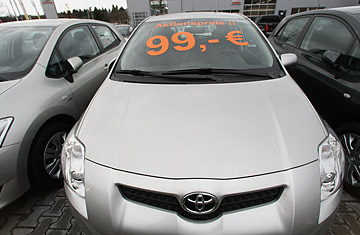
The Germans have an obsession with fiscal and monetary prudence born of past economic disaster. In November they approved a €23 billion ($30 billion) combination of tax holidays, subsidies and infrastructure investments. Now Chancellor Angela Merkel is adding another €50 billion ($65 billion), which includes reductions in health-care contributions and tax breaks for those who buy new cars. Over two years, these plans together add up to about 1.5% of GDP — much smaller than the U.S. stimulus.